Pay-per-click (PPC) advertising efforts are necessary for the success of any online marketing campaign. A proper PPC setup will make your business more noticeable via either a search engine or a social media platform. You’ll also target people searching for specific things while online.
There are two types of PPC options to explore based on your business needs and preferences. You could start with social media PPC, a method that uses social media outlets to advertise to their visitors. Or you can go with a search engine PPC solution that entails promoting your page on Google when someone is searching for your keywords in a search engine.
There are many differences between social media and search engine PPC solutions. But they are also alike in a handful of ways, as you will see in this brief guide.
What is Social Media PPC?
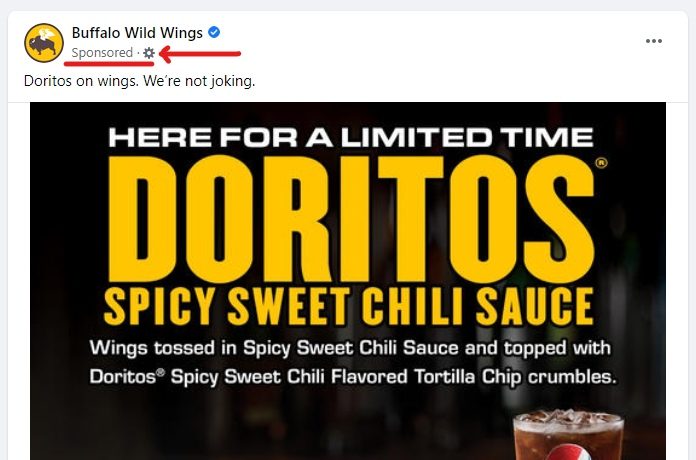
Social media PPC is a paid advertising format you can use on social media platforms such as Facebook or Instagram to get more likes, comments, or shares. You’ll create ads that target specific groups on a social media website like these.
You will create an advertisement on a social media page that will appear only to those who qualify to see the content. You can tailor your advertisement to be visible to people based on:
- A user’s physical location
- Whatever interests the user has, including what pages they visit
- The person’s demographics, including age, gender, marital status, and occupation
- Any other bits of data a social media platform will collect
You can tailor your ads around whatever people you wish to target at that time. You’ll pay for your advertisements based on how many times people click on a page or how many leads you convert through your ads.
There are many benefits surrounding social media PPC advertising worth exploring:
- It’s easy to get traffic to your site in less time through social media PPC efforts.
- You can target your advertisements to as specific of an audience as you wish.
- You have more control over how you’re promoting your work here. You can select who you want to reach and where you will target people.
- Social media sites cater to many types of people. You can select the outlets you’ll target based on whoever you want to reach the most.
PPC and paid social efforts work together through many platforms. The main social media networks that offer PPC advertising solutions include Facebook, Pinterest, Twitter, YouTube, Instagram, and LinkedIn.
What is Search Engine PPC?

Search engine PPC lets you place advertisements on a search engine’s results page to instantly boost your search ranking. Popular search engines that you can advertise on are Google, Bing, and Yahoo.
The process for setting up a search engine PPC is easy to follow. You’ll review your business and what search results people are likely to use when finding your place. You can then connect those keywords to specific bids.
Each bid will entail you paying a specific amount for each impression to your ad or for every click someone makes on that ad. You’ll need to plan your budget based on how much you want to spend for each keyword and how often people might click on an ad.
You can select your PPC search terms on many search engines, but Google is the most popular one to use. The benefits of using PPC on Google include:
- Letting you control how long your ads will appear. You can request the campaign to temporarily end after reaching a certain payment threshold, for example.
- The ads you produce can feature a detailed description of whatever you offer.
- Your ads can include different messages based on the keywords you’re using or the locations you’re targeting.
- You can use the Google Analytics tool to review how your PPC campaign works on Google.
Social Media PPC vs. Search PPC
The search engine PPC vs. social media PPC debate has been going on for a while. There are a few things to look at when deciding between these two choices for your advertising needs.
Social Media PPC Pros & Cons
Pros
- You can target specific audiences through social media
- Easy to track your results
- You can use different ads for each audience or social media platform
Cons
- Because of the vast amount of competition, there’s no guarantee your ads will always appear
- Consistent social media posts are essential for success
- Similar to billboard advertising, this is a method of disruptive marketing
Search Engine PPC Pros & Cons
Pros
- The search process focuses on the user’s intent
- Google provides various analytics systems for your convenience and tracking
- You can use as many keywords and platforms as you wish
- More people are likely to use search engines than social media
Cons
- You might struggle to figure out what it costs to reserve a keyword
- You’ll need to plan multiple keywords based on unique intents
- Proper campaign structure is key to good results
- Depending on your industry, clicks can get extremely expensive
Why Would Someone Choose Either One?
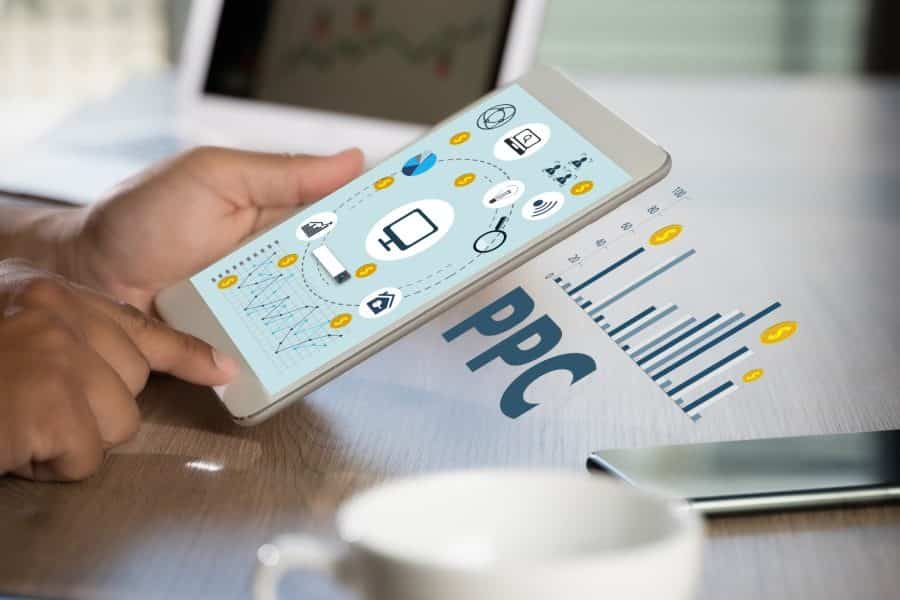
People are often willing to choose search engine PPC plans because they find it easier to promote their work on search engines. They may want to focus on the intentions people have when searching for certain things online.
But social media PPC is for those trying to target specific demographics. Social media is heavily segmented, with many people focusing on specific platforms. You could use social media PPC efforts to reach people who meet certain criteria or other points.
Pricing Points
The pricing for PPC efforts will vary by platform. A search engine plan can cost $1 to $2 per click on average (with high CPC industries potentially over $100 for a single click), with businesses often willing to spend $10,000 on a PPC campaign each month. The wealth of potential searches requires a company to spend that much money.
Social media PPC can cost less, as you often spend money based on how many impressions people see. You could spend $10 to $15 for every thousand impressions on most platforms. These impressions will count regardless of whether someone clicks on an ad or not.
Which Option Works For You?
Your business could benefit from either of these pay-per-click solutions. Search engine plans can work if you’re trying to promote your site through more places. But social media may be best if you want to target specific people.
Both of these choices are useful, so take note of what you can get out of either plan for your business. You can reach out to AWEBCO today by calling 217-903-5999 for more details on how to use a pay-per-click system that fits your use.

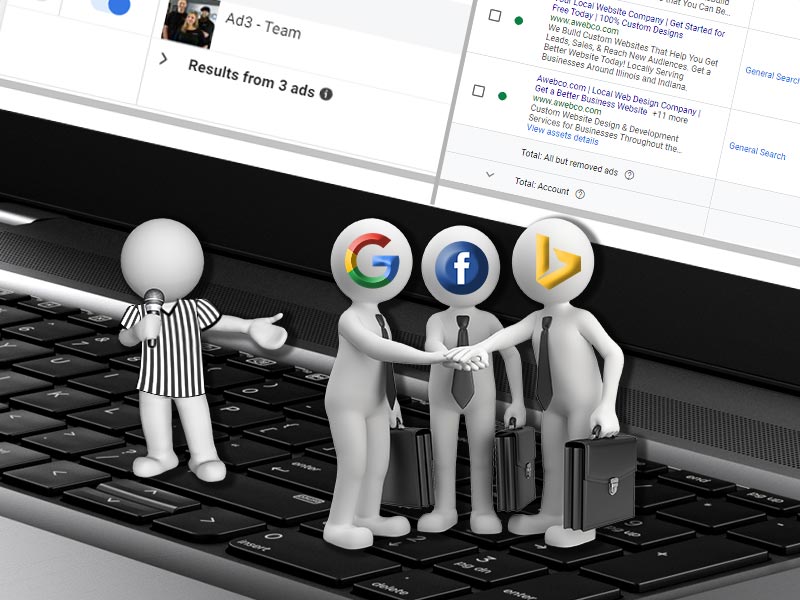

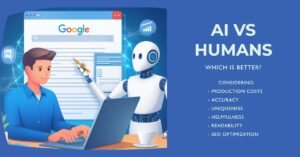
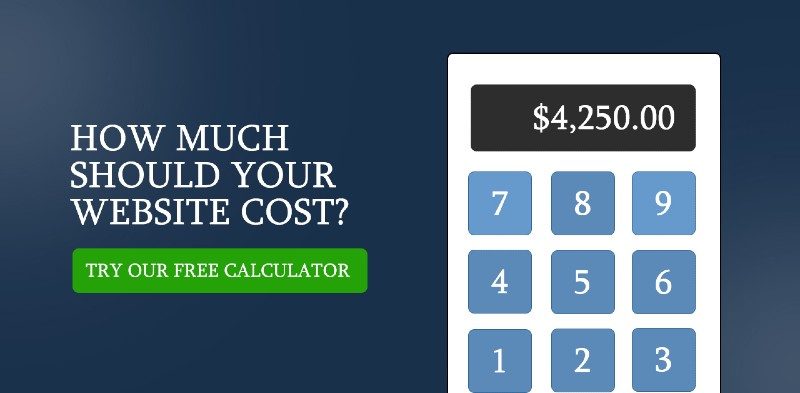
2 Responses
I’ve gained a lot from reading this article about the difference between ppc and smm.
Great article indeed!
Search and social media PPC of them are good, and It depends on the company’s goal and how they want to reach them to convert them into their customers.